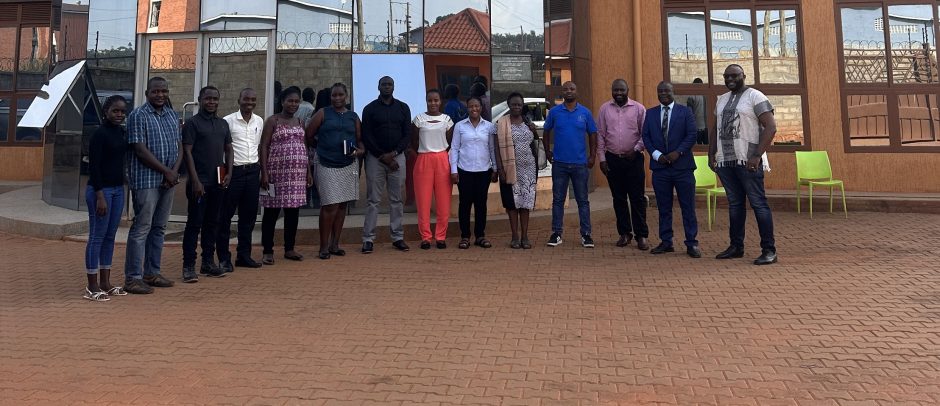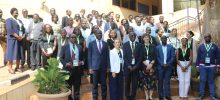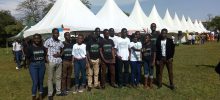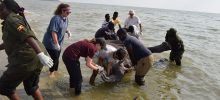Makerere University Anti-Tick Vaccine Development Initiative Hosts Technology Transfer Experts from South Africa at Alfasan Uganda Ltd
In preparation for producing its ground-breaking anti-tick vaccine, the Makerere University Anti-Tick Vaccine Development Initiative organized a two-week workshop aimed at providing its scientists with essential skills in technology transfer and key vaccine production process requirements. The workshop, which commenced on October 10th, 2023, was held at Alfasan Uganda Ltd, Namanve, and features renowned experts in vaccine production from Onderstepoort Biological Products Ltd, South Africa.
The purpose of their visit was to evaluate our Pharmaceutical Quality Management System (QMS), support the implementation of an effective QMS, and kick-start discussions regarding pharmaceutical research projects that would benefit both Uganda and South Africa.
The objective of this workshop was to equip the project scientists and technical team at the Vaccine Production Site with comprehensive knowledge on the entire vaccine value chain requirements. As the initiative transitions from the laboratory at Makerere University to the vaccine manufacturing process at Alfasan, it becomes crucial to ensure compliance with regulations and establish a sustainable manufacturing process.
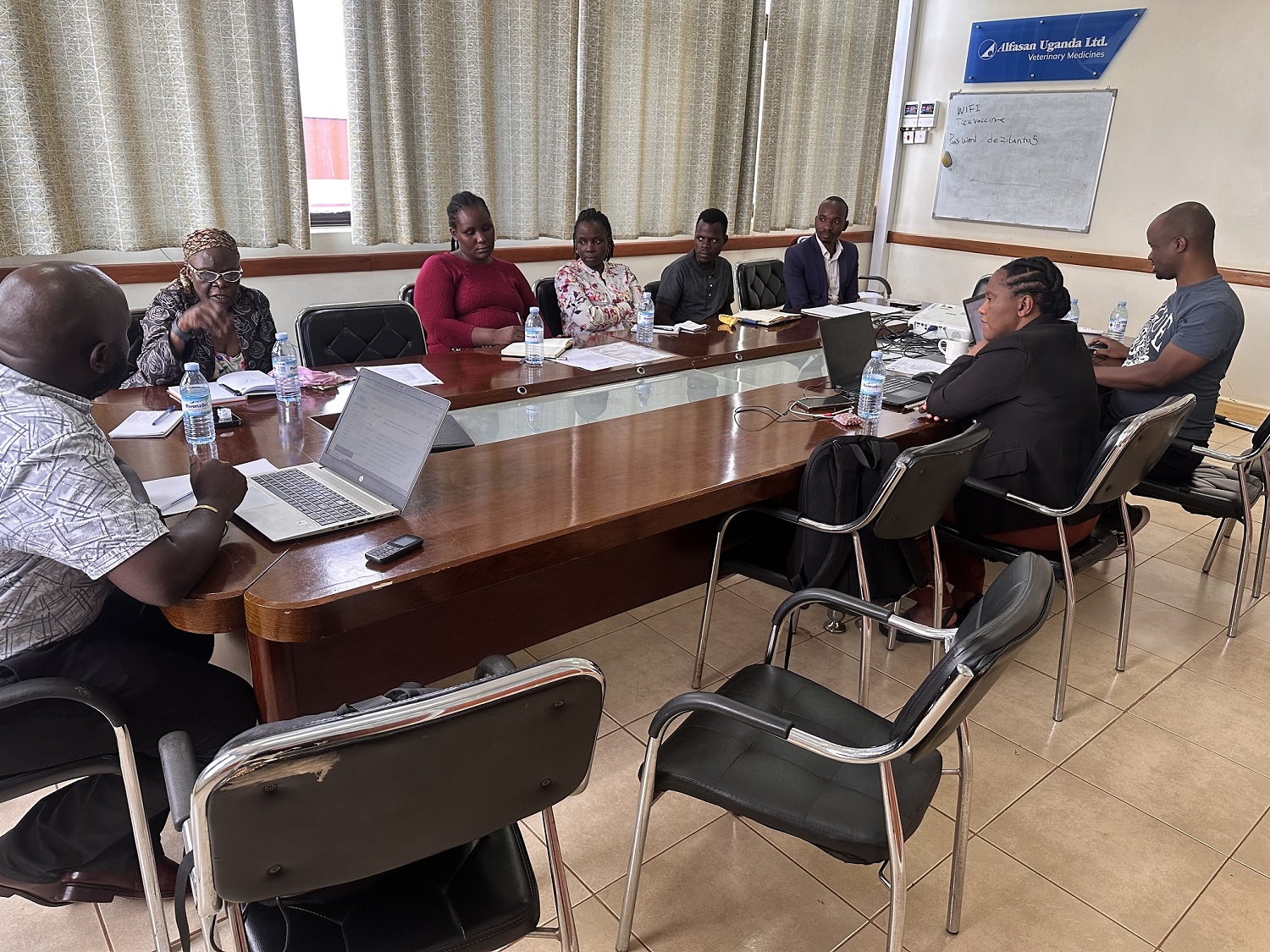
The workshop commenced with a formal engagement between the project scientists and the technical team at Alfasan and the South African-based experts, Dr. Nobalanda Mokoena and Dr. Faranani Ramagoma. The engagement aimed to address the key requirements throughout the vaccine production process, ensuring that every step is meticulously documented and managed.
The Managing Director of Alfasan (U) Ltd, Dr. Stephen Birungi, representing the collaboration between Alfasan Uganda Ltd and Makerere University (Tic-vac), extended an invitation to two South African scientists from Onderstepoort Biological Products (OBP) to come to Uganda for this knowledge sharing engagement. During the workshop, the experts were given a thorough guided tour of the Alfasan facility by Dr. Margaret Saimo-Kahwa the Principal Investigator of the anti-tick vaccine project, with special emphasis on the state-of-the-art anti-tick vaccine production line.
Documentation management of vaccine material holds paramount importance in this initiative, as it serves as the foundation for sustainable vaccine production. Participants were guided on the significance of maintaining detailed documentation for the efficient management of the entire process. Additionally, the experts emphasized the need to establish backup sites for the master seed, ensuring continuity of the manufacturing process.
The Anti-Tick Vaccine Development Initiative is committed to adhering to international standards and best practices in producing this innovative vaccine. By engaging with esteemed experts in Biological Product Development, they are taking proactive steps towards a successful technology transfer and efficient vaccine manufacturing process.
It should be noted that the visiting scientists had prior experience collaborating on similar projects with Dr. David Kalenzi Atuhaire during his time in Malawi and their visit to Uganda was sponsored by the National Research Foundation and OBP.
This workshop signifies a significant milestone in the journey towards commercialization for the Anti-Tick Vaccine. Through knowledge sharing and collaboration, the initiative aims to combat tick-borne diseases effectively, protecting both humans and animals from the perils associated with tick infestation.
Collaborative strides strengthened

During the meeting with the Principal of the College of Veterinary Medicine, Animal Resources and Biosecurity (COVAB), Prof. Frank N. Mwiine, welcomed the guests to Makerere University. He then highlighted the promotion of African nature in business and the historical relationship between South Africa and Uganda. He mentioned that many South Africans had studied in Uganda during the time of the liberation struggle in Nelson Mandela’s era, as they were unable to receive a good education in South Africa due to discrimination and racism by the white population.
Prof. Mwiine emphasized the importance of sharing food and giving home-based names to guests to foster friendship and sustain the bond between Uganda and South Africa. He pointed out the significance of always returning to one’s home country to contribute to its development, highlighting that the friendship between Uganda and South Africa can never be terminated.
Stressing Makerere University’s global impact, the Principal mentioned that the university produces many talented individuals from various countries. He introduced the different colleges within Makerere, including COVAB, and emphasized the university’s goal of becoming a research-led institution. He highlighted the need for commercializing research, citing the lessons from the COVID-19 outbreak as an example of how self-reliance and development are crucial.

The Principal also emphasized the importance of formal collaborations and public-private partnerships, specifically mentioning the partnership between Makerere University and Alfasan (U) Ltd. He noted that the President has been supportive of scientists and their work, and it is vital to formalize the collaboration through a Memorandum of Understanding (MOU) between Makerere University and OBP. He also stressed the need for consistent communication with project funders and emphasized the importance of an African-based workforce.
Dr. Ramagoma, speaking from the South African perspective, mentioned that the government in South Africa provides funds for collaboration with facilities in areas of common interest. He stated that OBP’s collaboration with Makerere University could serve as a pipeline for the future production of other useful products and highlighted the significance of knowledge transfer in vaccine manufacturing.
Dr. Nobalanda thanked the Principal for being hospitable and engaging with them. She expressed optimism about the continuation of the collaborative efforts and the positive outcomes that will result from the partnership between OBP and Makerere University.
Additionally, the delegates were given the opportunity to explore the different facilities at COVAB, including laboratories and farms. This tour provided them with a comprehensive understanding of the diverse scientific activities conducted at the college.
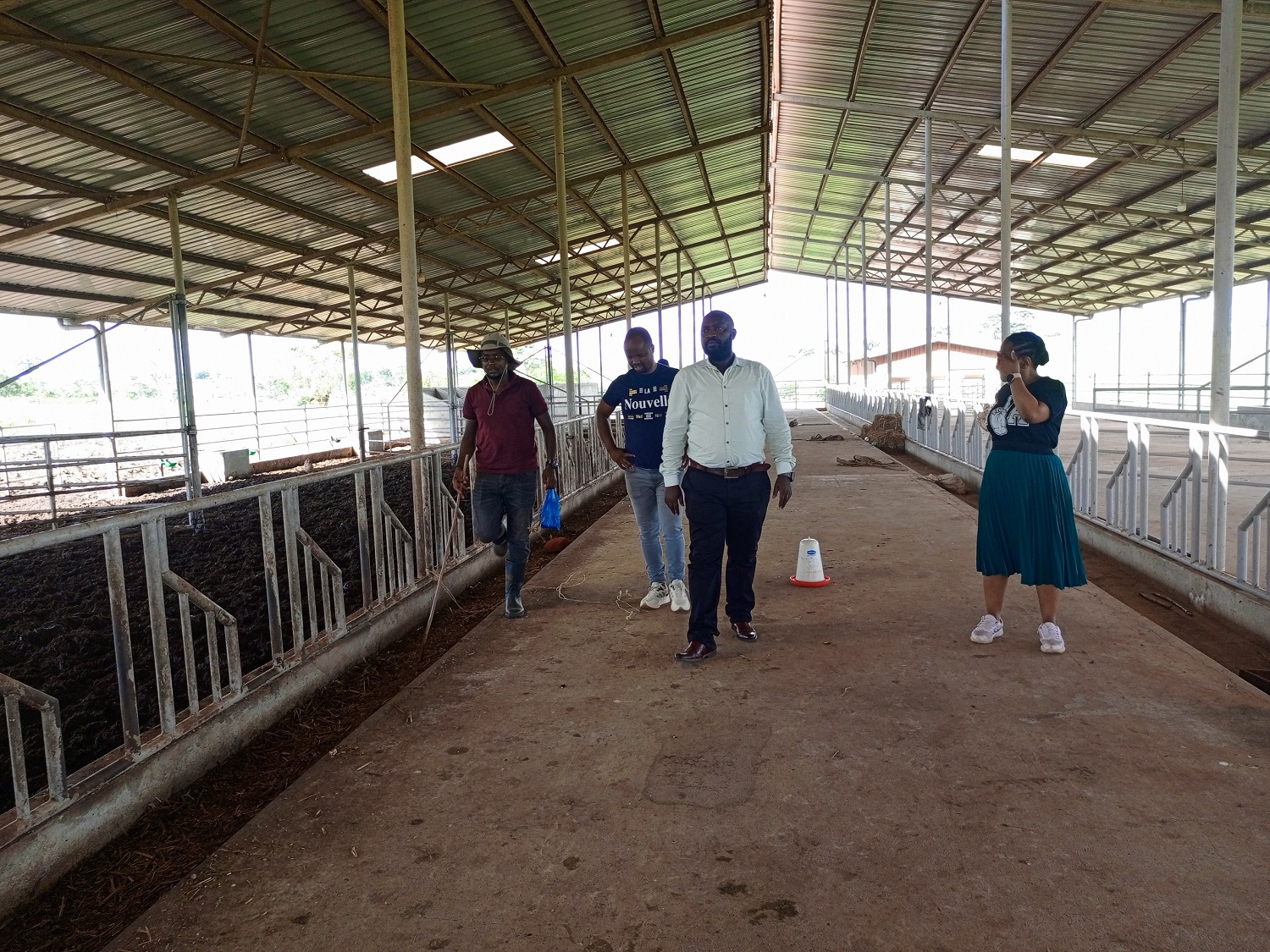
About the Anti-Tick Vaccine Development Initiative
The Anti-Tick Vaccine Development Initiative is a collaborative effort between researchers, scientists, and leading institutions dedicated to developing an effective vaccine against tick-borne diseases. With a focus on innovation, research, and technological advancement, the initiative aims to provide a sustainable solution to combat the serious health risks posed by ticks. For more information about the project visit our website at https://ticvac.co.ug/
About the Onderstepoort Biological Products (OBP)
OBP produces various types of vaccines for use in local and international markets. Their range of available vaccines contribute to the prevention of animal diseases such as Anthrax, Botulism, Enterotoxaemia, Rift Valley Fever, Brucellosis, Redwater, Lumpy Skin, and Three-Day Stiffness among others. Apart from vaccines, OBP produces a range of diagnostic reagents for use by veterinary laboratories to assist in diagnosing a range of livestock diseases. For more information visit their website at https://www.obpvaccines.co.za/
About Alfasan Uganda Ltd
Alfasan Uganda Ltd is a veterinary and human drug factory. On March 19, 2021, Alfasan joined forces with Makerere University College of Veterinary Medicine, Animal Resources and Biosecurity’s Anti-tick Vaccine Development Initiative through the signing of a Memorandum of Understanding to support the production of test batches for the Anti-Tick Vaccine.


